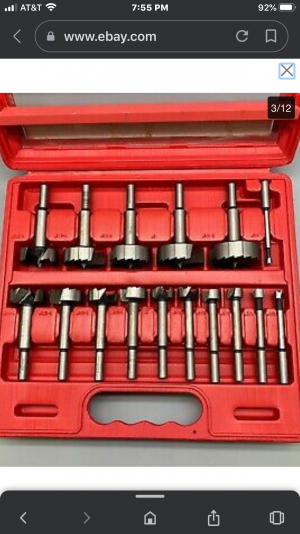- Joined
- Feb 2, 2019
- Messages
- 142
Hi everyone,
I need to drill some 1 1/2” blind and through holes in maple ( fresh logs )
I am using a Delta 14” drill press and it is working, but unless I pull up every or every other slow plunge to clear any chips, the bit SLIPS.
These are round shank , bits.
Hickory, steel not carbide.
Any advice on which bits and type of shank would be appreciated.
Drill press has a 5/8” chuck and set to the lowest speed at 215 rpm , chart recommends 250 rpm.
Thanks J
I hope the pic shows up.
I need to drill some 1 1/2” blind and through holes in maple ( fresh logs )
I am using a Delta 14” drill press and it is working, but unless I pull up every or every other slow plunge to clear any chips, the bit SLIPS.
These are round shank , bits.
Hickory, steel not carbide.
Any advice on which bits and type of shank would be appreciated.
Drill press has a 5/8” chuck and set to the lowest speed at 215 rpm , chart recommends 250 rpm.
Thanks J
I hope the pic shows up.


